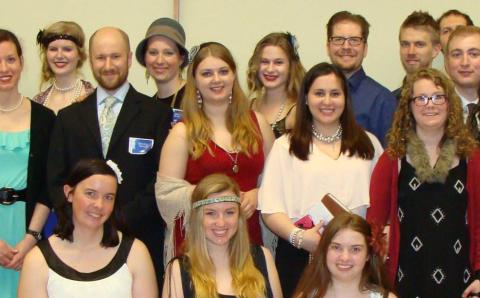Taylor Vos, a 2008 Calvin College graduate, is in the midst of ongoing conversations about “living smaller” in Phoenix, Ariz. These conversations are a part of his abiding interest in environmental sustainability.
Vos, who works in urban real estate development, is particularly intrigued by the “tiny house” movement. Tiny houses are sub-400-square-foot homes that provide incredible efficiency gains and allow almost total freedom from an energy grid.
“There is a financial and environmental appeal to tiny houses,” said Vos. “You can build a house for less than the down payment on a typical residence and then consume far less energy.”
Vos worked in communications in Grand Rapids, Mich., after college graduation. Then he and wife, Annie, decided to see the country by traveling—and living—in a conversion van.
“We’re both interested in urban planning, so we thought the best way to see what was going on in cities across the country was to draw up a map and see for ourselves,” he said.
Vos noted that Calvin sociology professor Mark Mulder’s urban sociology classes provided helpful background for the journey. Vos fashioned an interdisciplinary major at Calvin, taking all of Mulder’s classes and other courses that supplemented his interest in urban planning.
On the road, the young couple asked many questions, took notes—and lived in a very small space.
Settling in Phoenix, they decided to investigate building a tiny house.
“We got used to living very simply and engaged in the tiny house conversation,” he said. “Our research showed we could build a home for $15,000.”
But tiny houses currently are subject to the same zoning and building codes as traditional homes. All houses are required to have a foundation, and the numerous other permits and fees began to change the financial equation for them.
He helped a friend who was ahead of them in the tiny house building process and was trying to overcome the same barriers the Voses discovered.
“We wound up buying a 790-square-foot place in a historic neighborhood,” said Vos, “and our friend will eventually put her tiny house on our property as an accessory dwelling unit.”
The Voses haven’t given up on their interest in a tiny house. They know there have to be changes in city codes and restrictions for the movement to flourish.
“We’ll be involved in any conversation that is about how we can challenge ourselves to live better,” he said.
About the Author
Mike Vandenend, Calvin College









